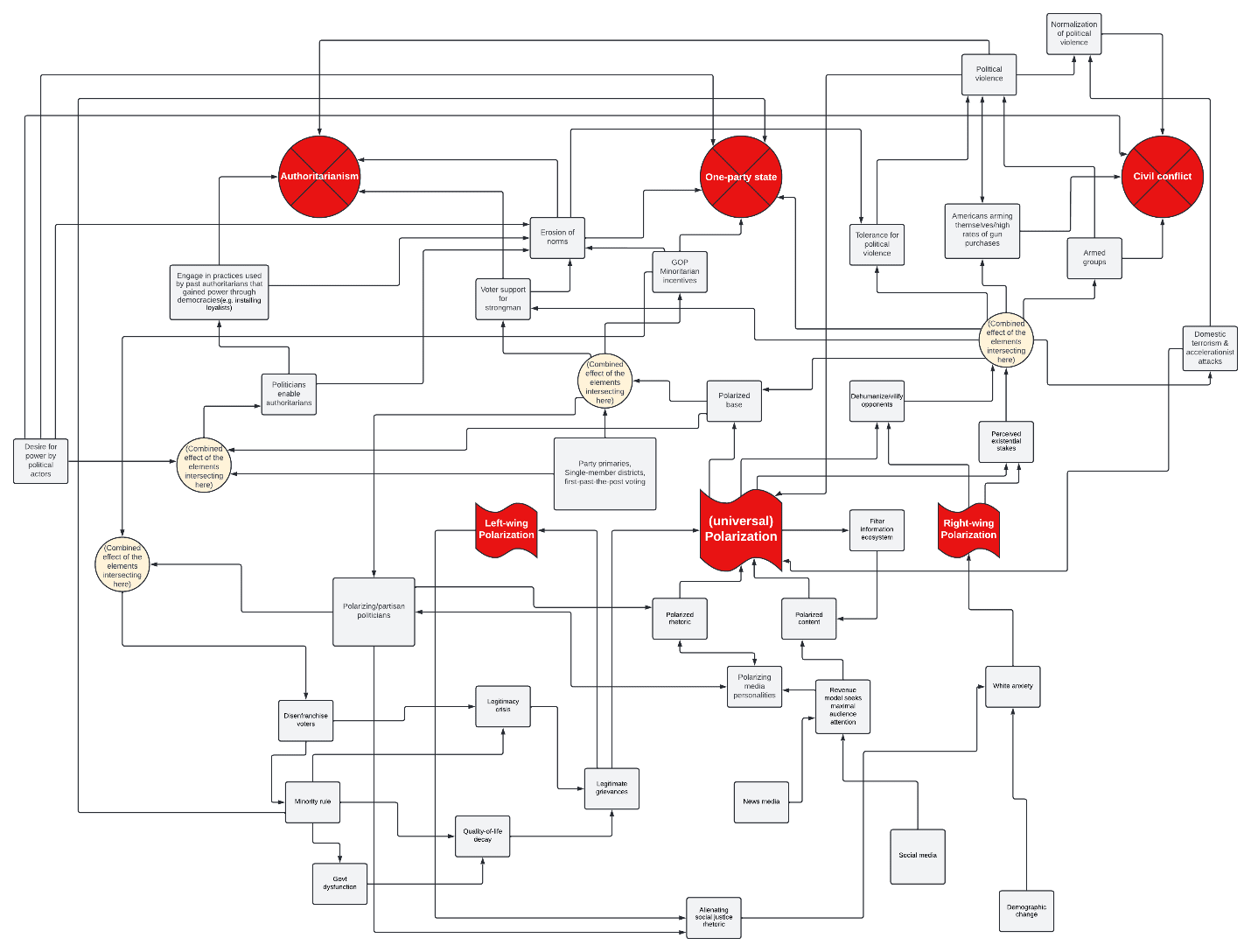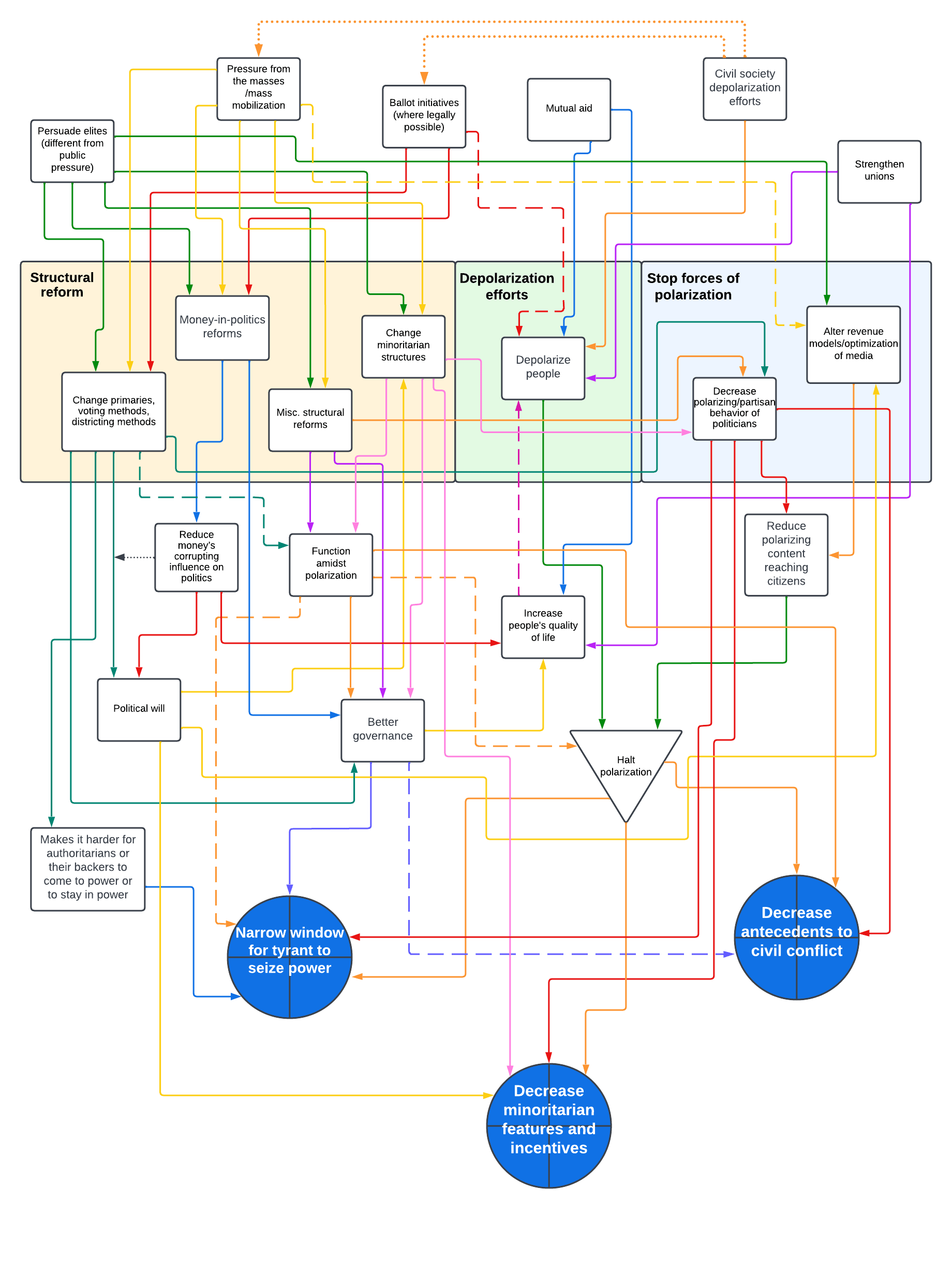
 EA Forum Podcast (Curated & popular)
EA Forum Podcast (Curated & popular) “Destabilization of the United States: The top X-factor EA neglects?” by Yelnats T.J.
Highlights
- Destabilization could be the biggest setback for great power conflict, AI, bio-risk, and climate disruption.
- Polarization plays a role in nearly every causal pathway leading to destabilization of the United States, and there is no indication polarization will decrease.
- The United States fits the pattern of past democracies that have descended into authoritarian regimes in many key aspects.
- The most recent empirical research on civil conflicts suggests the United States is in a category that has a 4% annual risk of falling into a civil conflict.
- In 2022 (when this was originally written), Mike Berkowitz, ED of Democracy Funders Network and 80,000 Hours guest, believes there is 50% chance American democracy fails in the next 6 years.
- For every dollar spent on depolarization efforts, there are probably at least a hundred dollars spent aggravating the culture war.
- Destabilization of the United States could wipe out billions of dollars of pledged EA funds.
Note following the [...]
---
Outline:
(00:07) Highlights
(01:16) Note following the assassination attempt of former President Trump
(02:45) Preface
(06:10) Acknowledgements
(06:24) Summary
(09:08) Possibility
(10:02) Big picture
(10:06) Authoritarianism
(12:57) Civil conflict
(16:50) Polarization
(20:40) How close we already came (January 6th)
(26:42) A note on the military counter argument
(28:18) Top reasons why the United States wouldn’t destabilize
(29:14) What I would have included in a longer version
(29:51) Conclusion
(31:36) Importance
(31:59) Global ramifications and great power conflict
(33:17) Artificial Intelligence and bio-risk
(33:22) Applicable to both
(34:27) Artificial Intelligence
(34:48) Accelerating climate disruption
(34:52) Authoritarianism
(35:25) Civil conflict
(36:08) Significance
(37:02) Effects on the Effective Altruism movement
(37:06) Talent
(37:29) Funds
(38:15) Plausible scenario
(39:01) Neglectedness
(40:36) Through the lens of polarization
(42:03) Tractability
(44:15) What is needed
(44:18) The broad needs
(44:46) Structural-reform needs\[80\]
(46:03) Needs for stopping polarizing forces
(46:38) Needs for Depolarizing the population
(46:58) Why it's difficult
(47:02) Structural reform
(47:36) Stopping polarizing forces
(49:01) Depolarize the population
(50:36) Where there is traction
(50:40) Ballot initiatives
(51:29) Robust federalism
(51:48) Prescription (what OP/EA could do)
(53:04) Funding and scaling existing efforts
(53:09) Create an operation focused on recruiting more funders and key non-funder partners to this effort
(54:00) Fund ballot initiative efforts and organizations
(56:15) Fund existing depolarization efforts and organizations
(56:51) Fund new organizations to fill gaps through an approach similar to the arrangement between CE and FTX for biosecurity
(57:54) Fund experiments/projects that will give us actionable information
(58:30) Miscellaneous interventions
(58:34) Preempting accelerationist events
(01:00:19) Invest in local journalism
(01:00:51) Promote sincere populist leadership in the Republican apparatus to replace culture warriors
(01:03:49) Invest in mutual aid networks
(01:04:17) Strengthening unions and preparing for a general strike
(01:05:32) My personal favorite
(01:05:36) Left-Right coalitions to run a slate of ballot-initiatives for structural reform
(01:06:49) Uncertainties (why OP/EA should do a medium-level investigation)
(01:08:21) Conclusion/call to action
---
First published:
July 15th, 2024
---
Narrated by TYPE III AUDIO.
---
Images from the article:


Apple Podcasts and Spotify do not show images in the episode description. Try Pocket Casts, or another podcast app.
